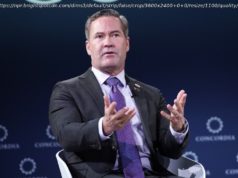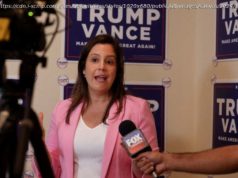At Mike Pompeo’s confirmation hearing, senators demand steady American diplomacy amid a Trump administration that, in the words of one, “lurches crisis to crisis.”
WASHINGTON — Senators on Thursday implored Mike Pompeo, the C. I. A. director nominated to be secretary of state, to stabilize the Trump administration’s erratic diplomacy by standing up to Russia and other adversaries and reinstalling American influence among allies.
Under persistent questioning, Mr. Pompeo said that he had spoken to Robert S. Mueller III, the special counsel investigating Russia’s meddling in the 2016 election. But Mr. Pompeo refused to describe what he had said, maintaining he was at the hearing to discuss foreign policy.
In a week when President Trump issued a fusillade of tweets about Syria, Russia and China that set a new standard for contradictory and inconsistent policy positions, the question of how Mr. Pompeo would manage White House impulses that can have global impact was the focus at the hearing’s start.
“Will you enable President Trump’s worst instincts?” asked Senator Robert Menendez of New Jersey, the senior Democrat on the Senate Foreign Relations Committee.
Senator Bob Corker, chairman of the committee and a Tennessee Republican, said that while Mr. Trump has sometimes been erratic, “we have also seen that good counsel has led the president to evolve.”
If confirmed, Mr. Pompeo would be the Trump administration’s second secretary of state in 14 months. In his opening statement, Mr. Pompeo signaled that he planned to harvest a forceful diplomacy.
He said he would take a tough line against Russia and push to improve the Iran nuclear deal through negotiations with European allies so that Mr. Trump could be persuaded to preserve it.
And as planning was underway at the White House and Pentagon for a potential missile strike on Syria for a suspected chemical weapons attack against civilians, Mr. Pompeo, a former Army captain, stressed that “war is always the last resort.”
“I would prefer achieving the president’s foreign policy goals with unrelenting diplomacy rather than by sending young men and women to war,” he said.
Code Pink protesters interrupted the hearing, denouncing what they said was Mr. Pompeo’s support for war.
Two sitting senators and former Senator Bob Dole, the longtime Republican leader from Kansas, introduced Mr. Pompeo to the committee and spoke highly of his credentials to be America’s top diplomat and his commitment to the rule of law.
Mr. Dole, who also introduced Mr. Pompeo during his confirmation hearing last year to be the director of the C. I. A., warmed up the panel, which is far from unanimous in its support to confirm him.
“I can see all you people up there. I can’t see very well, so you look good,” said Mr. Dole, 94.
Senator Richard M. Burr, the chairman of the Senate Intelligence Committee, assured his peers that Mr. Pompeo is transparent and a “natural fit” for the job.
“I asked Mike to lead the C. I. A. in an ethical, moral and legal manner,” Mr. Burr said. “And I’m here to tell you that he did exactly that.”
He asked those on the committee to examine Mr. Pompeo’s nomination on the merits alone.
“If there’s ever one where you put politics aside, this is it,” Mr. Burr said.
Mr. Pompeo caught Mr. Trump’s attention with his broadsides on Hillary Clinton during 2015 congressional hearings about the attacks on a diplomatic compound in Benghazi, Libya, that left four people, including Ambassador J. Christopher Stevens, dead. At the time, Mr. Pompeo was a Republican congressman from Wichita, Kansas.
Mr. Pompeo has been the director of the C. I. A. over the past year, and at least one officer died on his watch.
Mr. Pompeo kicked off his remarks to the panel with a reminder to lawmakers that, as a former congressman, he understands the important oversight role of Congress. He pledged to be in regular contact and work well with the committee — something former secretary of State, Rex W. Tillerson, was not known for during his brief term.






